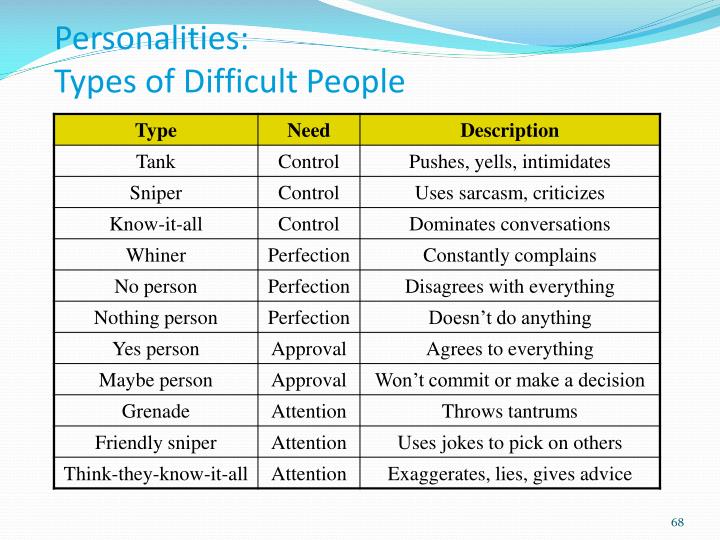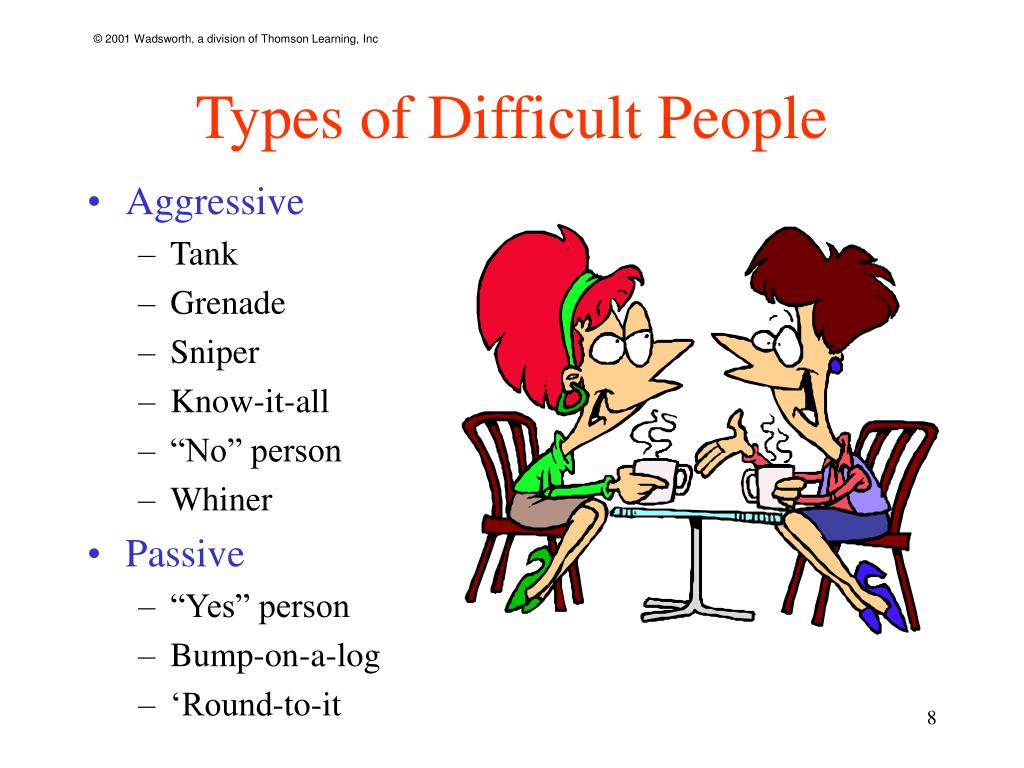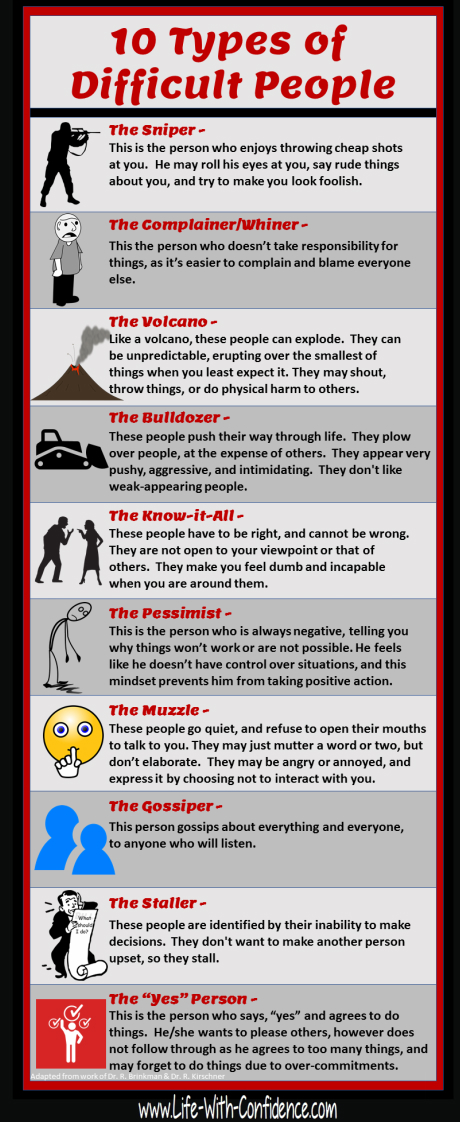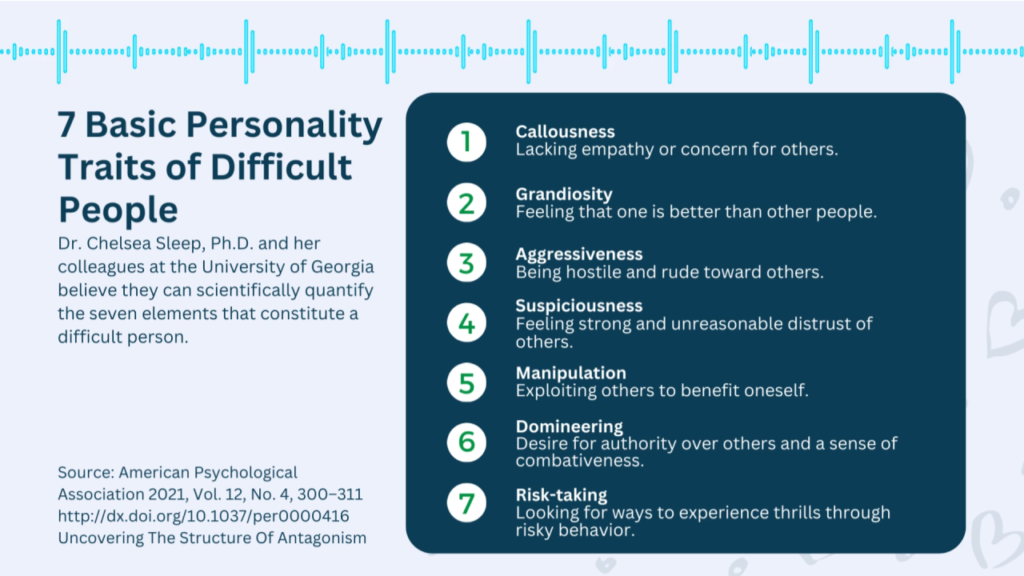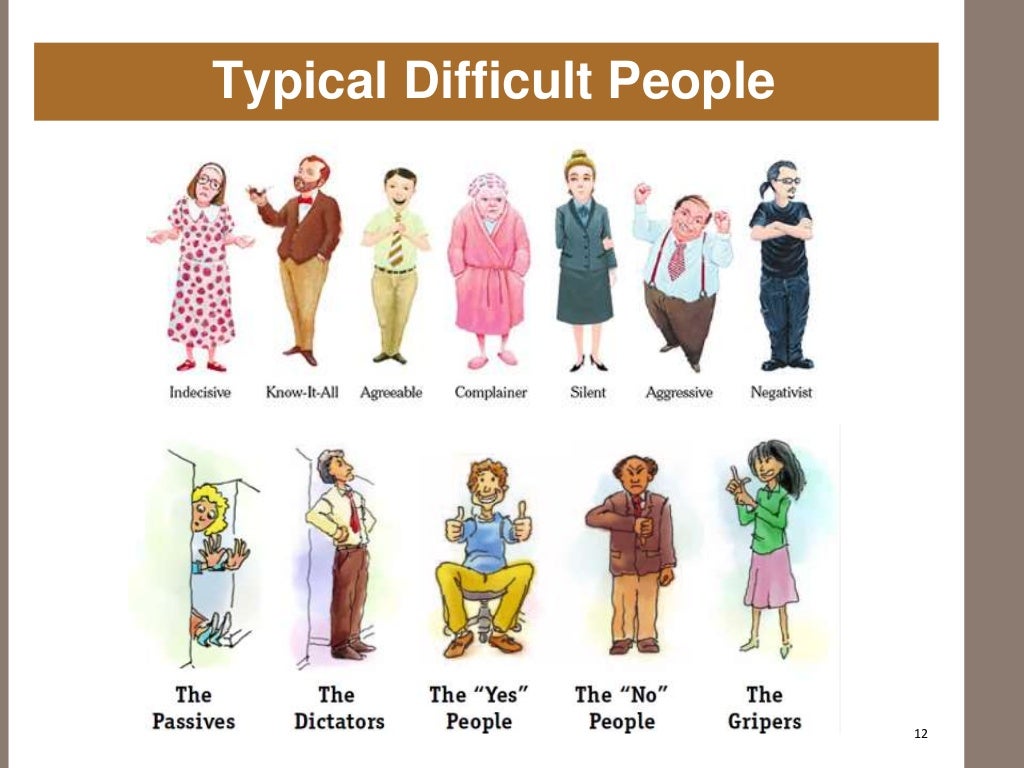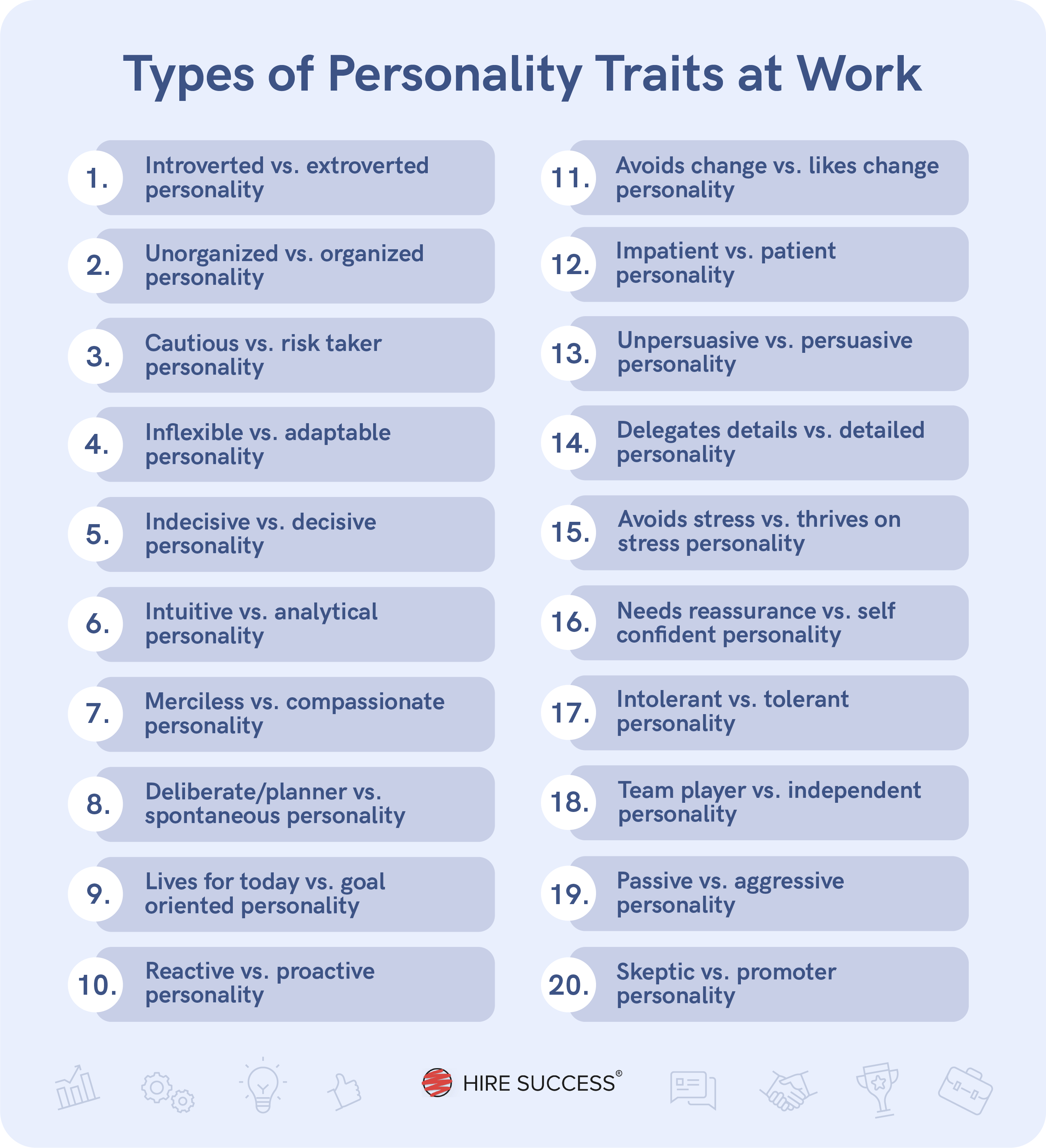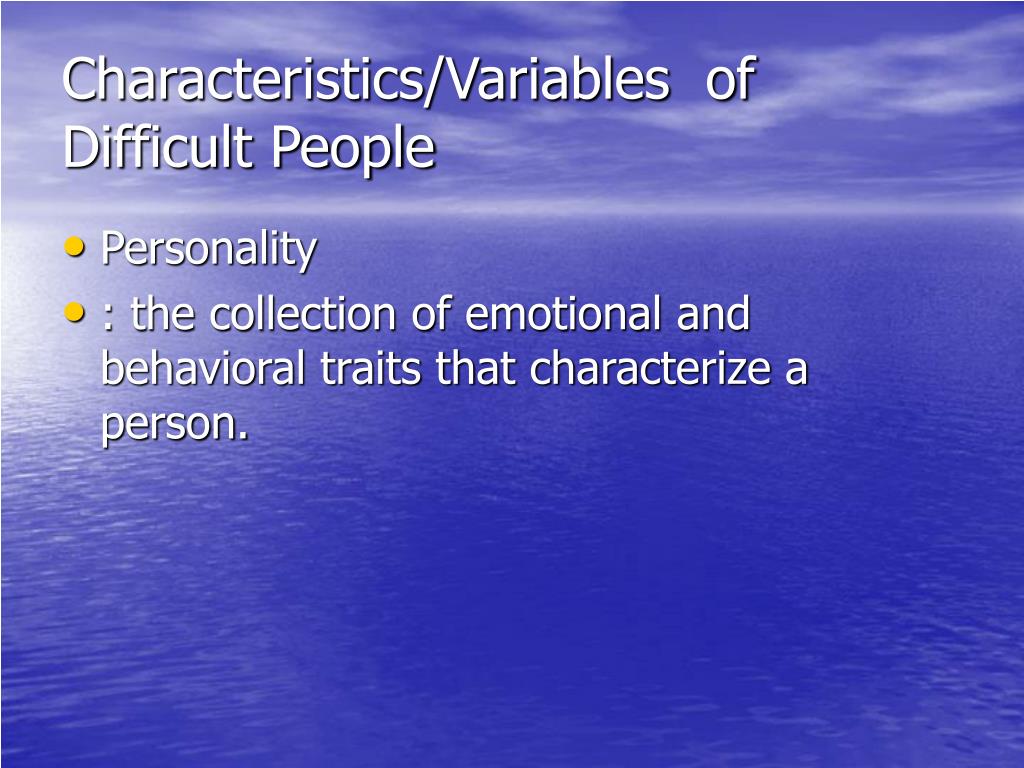Characteristics Of A Difficult Person

Imagine a team meeting, the air thick with tension. One person consistently interrupts, dismissing ideas with a wave of the hand and a cutting remark. Their negativity seems to suck the energy from the room, leaving everyone feeling drained and unmotivated. It's a scenario many of us have experienced, leaving us wondering, "Why are they like that?"
Navigating challenging personalities is a crucial skill in both personal and professional life. Understanding the characteristics of a difficult person, and more importantly, how to respond effectively, can significantly improve relationships and foster a more positive environment for everyone.
Understanding Difficult Personalities
What exactly defines a "difficult person"? It's not about simply having disagreements or different opinions. It's about consistent patterns of behavior that create conflict, hinder progress, and negatively impact those around them.
There isn't a single "difficult personality type," but rather a range of behaviors that can manifest in different ways. Consider the chronic complainer. They seem to find fault in everything, always focusing on the negative aspects of any situation. Their constant negativity can be incredibly draining and demoralizing.
Then there's the critic, often offering unsolicited and harsh feedback. They may mask their criticisms as "constructive," but their words often feel more like personal attacks. This can create a defensive atmosphere where people are afraid to share ideas.
Another common type is the passive-aggressive individual. Instead of directly expressing their feelings, they use subtle digs, sarcasm, or even deliberate procrastination to undermine others. This indirect approach can be incredibly frustrating to deal with.
Common Characteristics
While difficult people may display a variety of behaviors, some common threads tend to run through their personalities. One is a lack of empathy.
They struggle to understand or acknowledge the feelings of others, often prioritizing their own needs and perspectives. This can lead to insensitive remarks and a disregard for the impact of their actions.
Communication is often a challenge. Difficult people may interrupt, dominate conversations, or refuse to listen to opposing viewpoints. This makes collaborative problem-solving nearly impossible.
Another key characteristic is a tendency to blame others. They rarely take responsibility for their mistakes, instead shifting the blame onto colleagues, circumstances, or even external factors. This creates a culture of mistrust and prevents them from learning from their errors.
The Role of Insecurity
It's important to remember that difficult behavior often stems from underlying insecurities. A person who is constantly critical may be trying to mask their own feelings of inadequacy. Someone who is controlling may be driven by a fear of losing control. Understanding this can foster a more compassionate approach.
Responding Effectively
Dealing with difficult people requires a strategic approach. One crucial step is to set clear boundaries. Politely but firmly assert your needs and limits. For example, if someone is constantly interrupting you, you might say, "I'd like to finish my thought before you jump in."
Another helpful strategy is to focus on facts, not emotions. When addressing a concern, stick to specific examples of behavior rather than making broad generalizations. This can help to de-escalate the situation and avoid getting drawn into an emotional argument.
Active listening is also key. Even if you disagree with what someone is saying, make an effort to understand their perspective. This doesn't mean you have to agree with them, but it can help to build rapport and find common ground.
Remember, sometimes the best approach is to disengage. If you find yourself in a cycle of unproductive conflict, it may be wise to remove yourself from the situation. This doesn't mean you're giving in; it simply means you're protecting your own well-being.
"When dealing with difficult people, remember that you are not responsible for their behavior," advises Dr. Sarah Johnson, a leading expert in workplace dynamics. "You are only responsible for how you respond."
The Bigger Picture
Ultimately, navigating difficult personalities is about creating a more positive and productive environment for everyone. By understanding the characteristics of difficult people and learning effective strategies for responding, we can foster stronger relationships and build more resilient teams.
It's not always easy, and it requires patience, empathy, and a willingness to adapt. But the rewards – a more harmonious workplace, stronger relationships, and a greater sense of well-being – are well worth the effort.
So, the next time you encounter a challenging personality, take a deep breath and remember that understanding and strategic communication can pave the way for a more positive outcome. Sometimes, the greatest challenge is also the greatest opportunity for growth.


